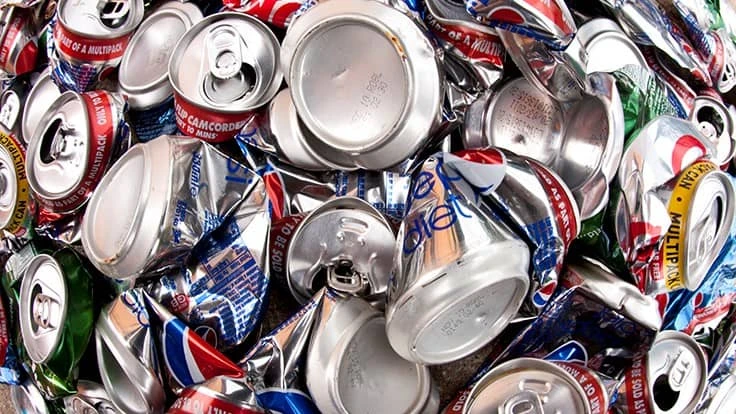
Photo provided by Dreamstime.
California-based Kaiser Aluminum has just released its 2020 sustainability report, which mentions its purchase of a smelter and rolling mill in near Evansville, Indiana, as a positive factor on its sustainability scorecard.
“Our Warrick rolling mill is one of only four dedicated rolling mills in North America for beverage and food packaging and is the first facility of its type in this market to achieve Aluminium Stewardship Initiative Performance Standard certification for responsible sourcing and stewardship of aluminum,” writes Kaiser president and CEO Keith A. Harvey.
In the section of the report on its Warrick mill-based packaging sector, Kaiser Aluminum writes in part, “Customers and their customers have established sustainability targets to increase the recycled content from the industry-leading 73 percent to ensure aluminum beverage cans and bottles remain the most sustainable packaging on the market.”
The company also portrays closed-loop aluminum scrap processes it is implanting in its aluminum facilities that supply the automotive industry. “Recycled aluminum and other metals make up more than half of all material used in our remelt/casting operations,” states Kaiser in that section.
Increased recycling has been part of a wider effort to reduce Kaiser’s greenhouse gas (GHG) emissions by 21 percent since 2010, the company adds.
Kaiser Aluminum completed the purchase of the Warrick facility from Alcoa in April 2021. Harvey said at that time, “The acquisition provides us with a strategic re-entry into the attractive aluminum packaging industry with excellent opportunities for further growth and significantly enhances, diversifies and reduces the cyclicality of our portfolio.”
Get curated news on YOUR industry.
Enter your email to receive our newsletters.
Latest from Recycling Today
- AF&PA report shows decrease in packaging paper shipments
- GreenMantra names new CEO
- Agilyx says Styrenyx technology reduces carbon footprint in styrene production
- SABIC’s Trucircle PE used for greenhouse roofing
- Hydro to add wire rod casthouse in Norway
- Hindalco to invest in copper, aluminum business in India
- Recycled steel price crosses $500 per ton threshold
- Smithers report looks at PCR plastic’s near-term prospects





